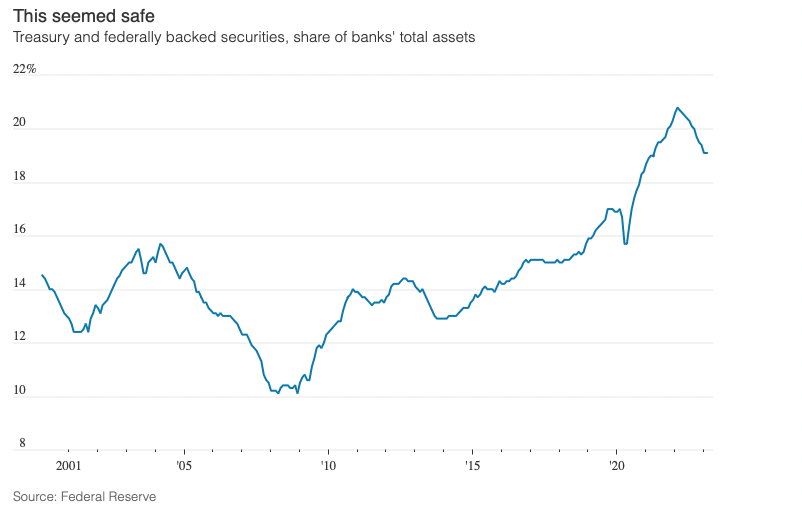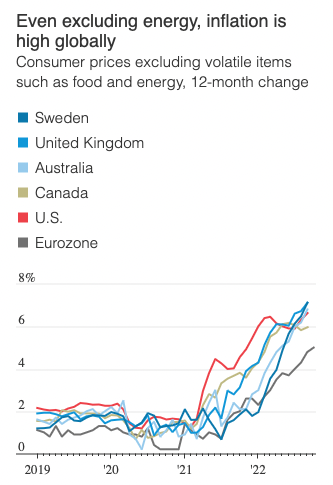
We've seen this before. Fed's experience in 07-09 told it shadow banks, structured products and too-big-to-fail banks were the weak links. Turns out it's boring old bonds, deposits and smaller regulated banks. My column explains. wsj.com/articles/svb-f…
2/ What could be safer, post-GFC, then a regional bank taking in deposits and investing them in government bonds? Well, a safe strategy taken to extremes becomes unsafe. (#Foolproof). Buying zero risk weighted Treasury & agency securities seemed safe so banks loaded up ... 

3/ Of course, these bonds don't have credit risk but they do have interest rate risk and interest rates went up a lot - more than bankers or their regulators anticipated, creating very large mark to market losses.
4/ Which is not a problem unless the bank has to sell the bonds to redeem deposits, which is unlikely unless the deposits are concentrated and uninsured .. as 45% are now, and 90%+ @ SVB & Signature. 

5/ The premise of lighter regulation for < $250B banks is they can fail without systemic consequences. Turns out though smaller banks don't have to be interconnected to spread contagion: they just have to look similar. SVB should have been idiosyncratic, but became systemic...
6/ Forcing Fed, FDIC, to treat this as a systemic crisis. the upshot: financial system has a new source of fragility that the post-GFC reforms weren't designed for. Maybe confidence, stability return soon. Maybe shadow banks,, crypto, etc. become a bigger problem later...
7/ But if not 2 difficult options: expand the safety net to all deposits at all banks (effectively making them GSEs)? or stand by and let those banks shrink, or be taken over, because large depositors no longer trust them?
• • •
Missing some Tweet in this thread? You can try to
force a refresh








